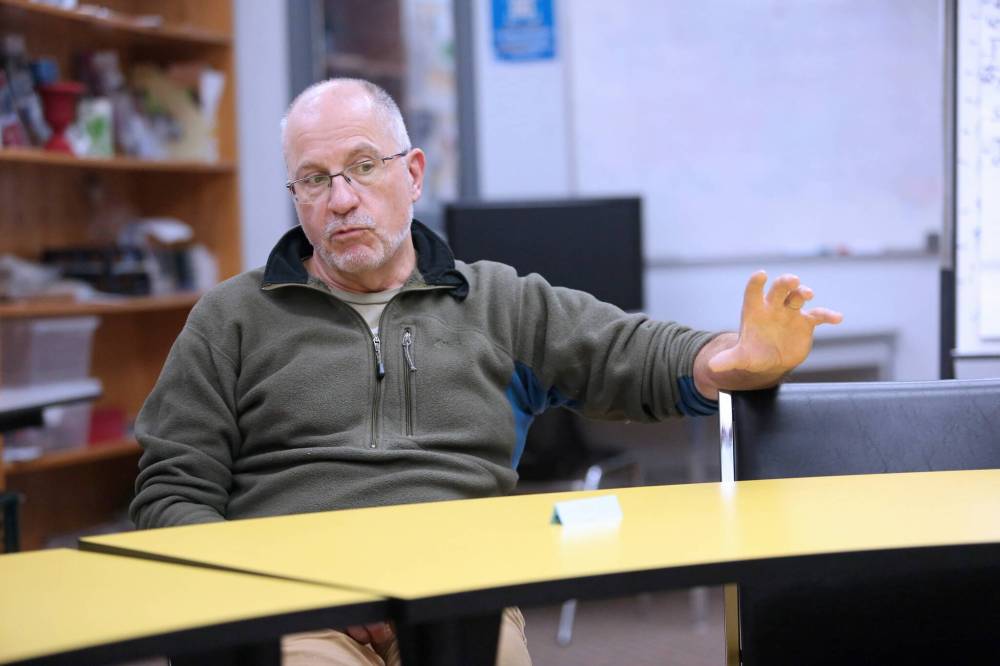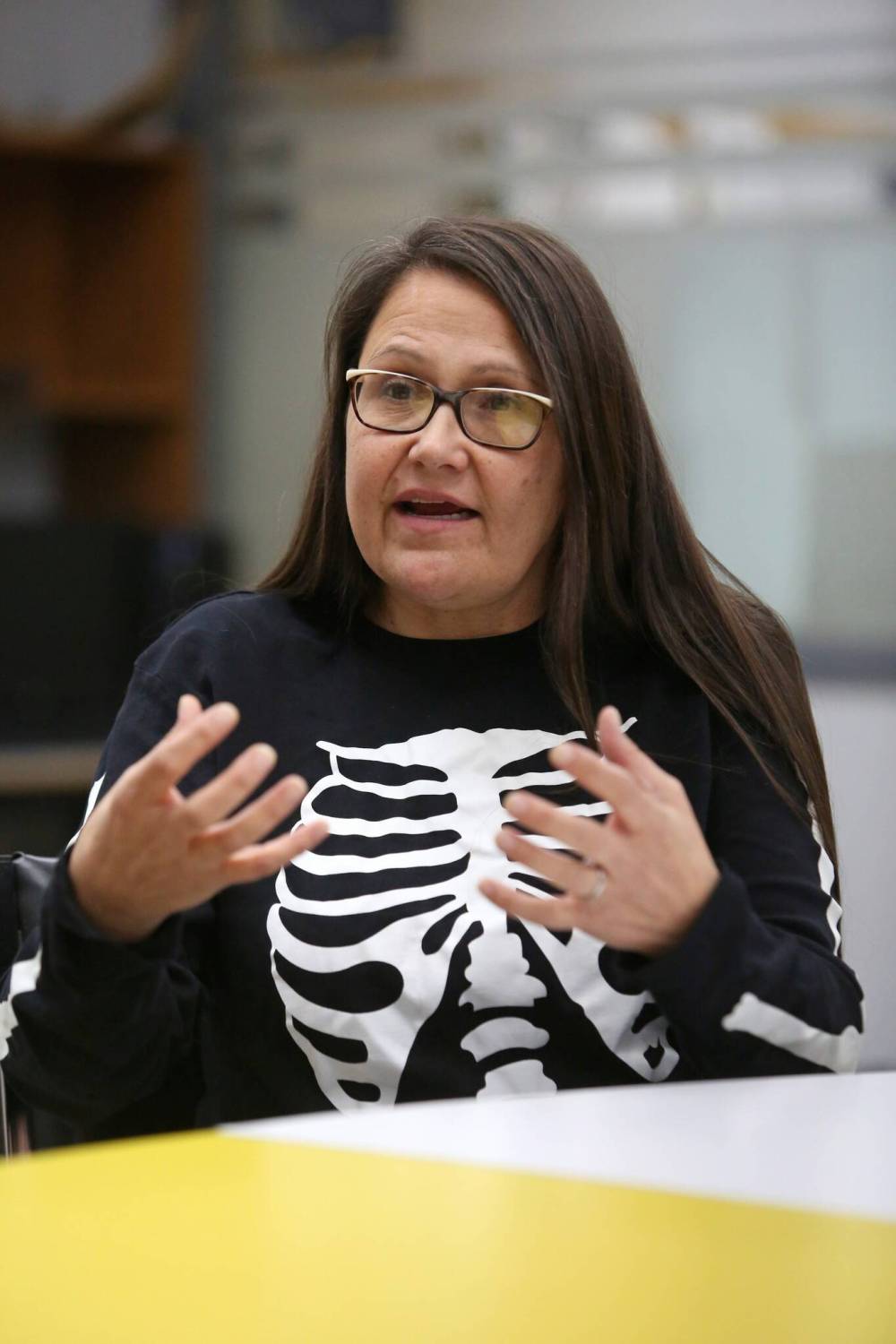Calls mount for mental health court to serve Westman region
Longtime Brandon lawyer says program focusing on treatment — not punishment — needed
Advertisement
Read this article for free:
or
Already have an account? Log in here »
To continue reading, please subscribe:
Monthly Digital Subscription
$0 for the first 4 weeks*
- Enjoy unlimited reading on winnipegfreepress.com
- Read the E-Edition, our digital replica newspaper
- Access News Break, our award-winning app
- Play interactive puzzles
*No charge for 4 weeks then price increases to the regular rate of $19.95 plus GST every four weeks. Offer available to new and qualified returning subscribers only. Cancel any time.
Monthly Digital Subscription
$4.99/week*
- Enjoy unlimited reading on winnipegfreepress.com
- Read the E-Edition, our digital replica newspaper
- Access News Break, our award-winning app
- Play interactive puzzles
*Billed as $19.95 plus GST every four weeks. Cancel any time.
To continue reading, please subscribe:
Add Free Press access to your Brandon Sun subscription for only an additional
$1 for the first 4 weeks*
*Your next subscription payment will increase by $1.00 and you will be charged $16.99 plus GST for four weeks. After four weeks, your payment will increase to $23.99 plus GST every four weeks.
Read unlimited articles for free today:
or
Already have an account? Log in here »
Defence lawyer Bob Harrison has spent almost 40 years practising in Brandon and brings up the need for a mental health court whenever he has a chance.
“I’m always yapping about it,” Harrison said. “We’ve got a lot of mental health problems in this area, so that’s why I keep going on about it.”
Manitoba’s only mental health court is in Winnipeg. Established in 2012 as a joint initiative between Shared Health, Winnipeg Regional Health Authority and Manitoba Justice, its purpose is to divert adults whose crimes are a direct result of their mental illness out of the regular court system.

Ross Robinson is executive director of the John Howard Society of Brandon. (Matt Goerzen/The Brandon Sun)
Harrison said people with mental illness typically don’t function well in jail because they are “prone to getting picked on.”
A mental health court program could result in a person receiving a community-based sentence or having their charges stayed — a “win-win” situation, Harrison said.
“In custody, they’re not going to get the help, not the extensive help, the program provides,” Harrison said.
Marnie Evans, the Crown attorney for Winnipeg’s mental health court, said the court has two tracks — mental health court proper and the pre-plea diversion program.
When an accused is accepted into the mental health court proper program, they are expected to plead guilty to the offences for which the Crown is seeking pleas.
Evans said it’s more intensive than the pre-plea option and lasts 18-24 months.
Once the accused enters pleas, they join the rest of the participants and are expected to attend court every week and meet with the mental health court treatment team.
If completed, the accused’s charges will either be stayed or they will receive a community-based sentence, depending on the seriousness of the offences.
The pre-plea program didn’t launch until 2019 and doesn’t require the accused to enter guilty pleas. The accused is required to appear in court to have the rules of the program will be explained to them.
They then meet with a mental health court treatment team designate and participate in programming that focuses on their specific needs for up to six months.
If the accused completes their programming, the expectation is that their charges will be stayed.
People who want to go through either of the mental health court programs need to apply and meet the “criteria of admissibility.” This means that a person’s mental health and offending are linked, Evans said
Not all offences are admissible. Homicide, impaired driving, negligence causing death, child abuse, child pornography and criminal organization offences, along with any offences causing serious bodily harm, are some of the charges the mental health court won’t hear.
Evans said an accused person usually completes the application with their lawyer to make sure they fully understand what they are signing up for and the rights they are waiving.

Janice Irvine, co-ordinator for Community Mobilization Westman, says in an Oct. 31 interview mental-health conditions and a lack of support can lead people to be involved in the justice system. (Matt Goerzen/The Brandon Sun)
If an accused person enters guilty pleas in mental health court and they do not complete the program they are not allowed to withdraw their guilty pleas and will have to deal with them in regular court.
The John Howard Society of Brandon works with people involved in the criminal justice system, which includes providing diversion services through Manitoba Justice and working with inmates at Brandon Correctional Centre to help them reintegrate into their regular lives after incarceration.
Executive director Ross Robinson sees value in Westman having a mental health court.
He doesn’t know how many cases Brandon would generate, but said if “there’s an individual case that can be diverted from the criminal justice system, it’s probably of tremendous value to that individual and their family.”
Janis Irvine, who is a co-ordinator for Community Mobilization Westman, said the general public may have the idea everyone before the court has “criminal thinking,” but that’s not the case.
“We look at how mental health gets people involved in the system, and if they had the proper supports, would they engage with the criminal justice system? And my experience would say, if they had the support, a lot of folks wouldn’t.”
Since its inception, 151 people have graduated from the two tracks of Winnipeg’s mental health court program, a Shared Health spokesperson said in an emailed statement.
In 2024, 11 people graduated from the two-year program and in 2025 there were 22. There is usually an even number of men and women in the programs.
When asked if there are any plans to implement a mental health court in Brandon, why Brandon doesn’t have a mental health court and what it would take to get one, Manitoba Justice Minister Matt Wiebe provided a statement that did not directly respond to the questions.
“We’re proud of the work that the mental health court in Winnipeg and the drug treatment court in Brandon do, diverting people who need mental health supports and treatment away from traditional courts and getting them the help they need so that they don’t reoffend,” Wiebe’s statement said.
sanderson@brandonsun.com




